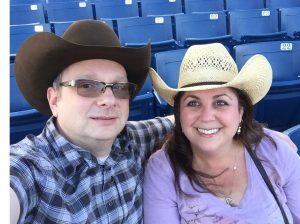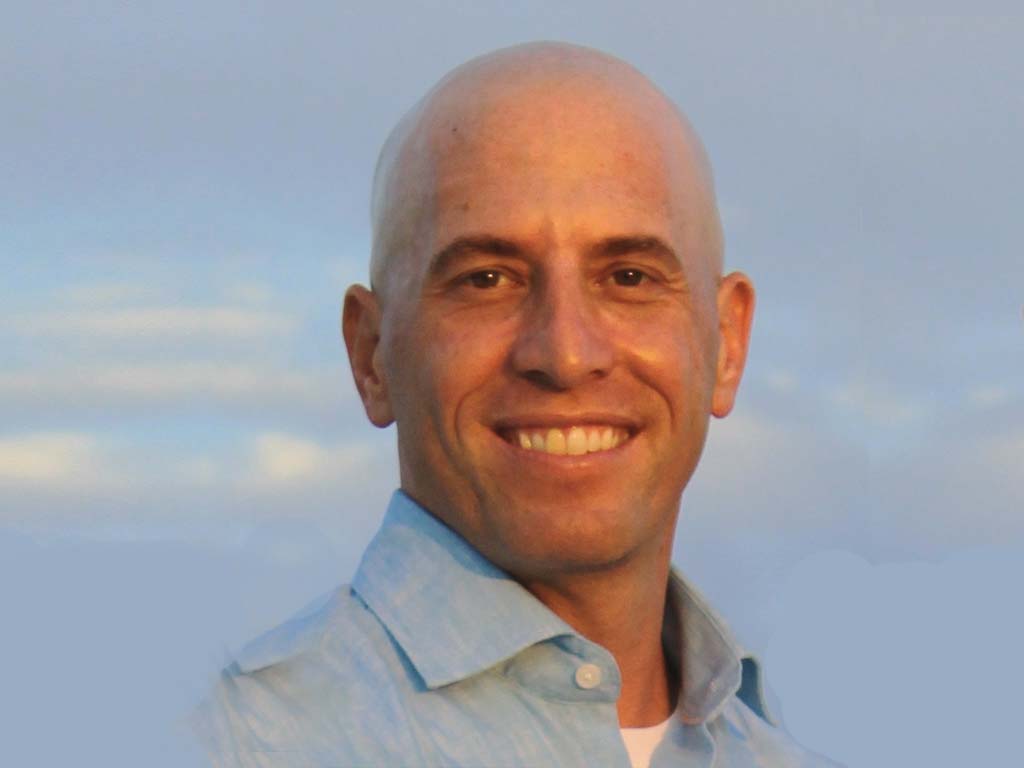 Robert and Beth Weiss at the Route 91 Harvest Music Festival
Robert and Beth Weiss at the Route 91 Harvest Music Festival
Like many of the thousands of people around him, Robert Weiss, PA-C, thought the popping sound he heard was firecrackers. It was October 1, 2017, and he was sitting in the grandstands at the Route 91 Harvest Music Festival with his wife, Beth, a registered nurse, watching Jason Aldean perform. Then, after hearing the noise again, Weiss, an emergency medicine PA with TeamHealth Emergency Medicine, saw a police officer by the stage holding his firearm. That’s when he realized: The popping noise was gunshots.
The Weisses first took cover behind their seats. Then they made their way to the standing room only area by the stage. “At that point, people were scrambling and running. The crowd was moving in varying directions,” he says. As they moved, the Weisses passed a young woman who had been shot in the head. Gunshots continued while they worked their way down the stairs and onto the dirt and asphalt of the lot below.
From there, the Weisses knew they had to get to the medical tent, which was across the field, to help with care. As they made their way there, Weiss covered Beth every time he heard a burst of gunfire. When they arrived at the tent, patients had filled every available space. They were sitting in folding chairs and lying on the ground. Some had gunshot wounds to the chest, abdomen, or thigh; some had sprained ankles or trample injuries; some were emotionally distraught without physical injury. Weiss says, “I identified myself and tried to find whoever was in charge. And I got to work.”
Providing care where it was most needed
When Yoel Levy, MS, MPAS, PA-C, an emergency medicine PA with TeamHealth Emergency Services, got a text message at 6 a.m. on October 2, he figured he would be sent to Sunrise. But clinicians from other hospitals had already been pulled to help there. As a result, Southern Hills Hospital & Medical Center—a smaller hospital that is located further away from the strip—was short staffed. Levy was sent there, where 10 patients who had been at the festival were treated.
The patients who came to Southern Hills had comparatively minor injuries, such as lacerations to the skin, sprained ankles, strained shoulders, and general anxiety. Levy stayed at the hospital for about 15 hours, until other clinicians arrived to relieve him.
Coming Together
In the hours after the shooting, Levy and Weiss were most struck to see how many people were looking out for others. “For a place like Las Vegas that you wouldn’t think would have this community, everyone came together,” Levy says.
At Sunrise, for example, staff members from clinicians and administrators to respiratory techs and janitorial services, flowed into the hospital to help that night. Many patients told Weiss he should help someone else because other people needed care more than they did. And for two months after the shooting, people from hospitals across the country sent posters, cards, letters, pictures, and gifts to Sunrise to show their support.
Weiss says that this encouragement has helped him with the healing process. “I take a lot of comfort knowing I trained for a job, I was available when I was needed the most, and I was able to provide some help and some comfort to people,” he says.
Jennifer Walker is a freelance writer in Baltimore, MD. Contact Jennifer at jenniferwalker319@gmail.com.


























